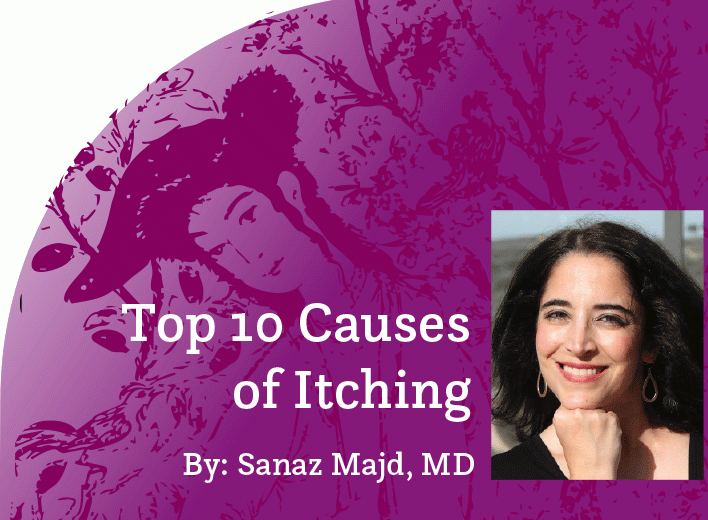I have seen a surge of insomnia reported by patients in the clinic since the COVID-19 pandemic began. According to a recent article by The Washington Post, prescription sleep aid usage has increased by 15% during this time. The UCLA Sleep Disorders Center reports an increase of 20-30% in the number of insomnia patients. Some experts have even termed this new insomnia epidemic as “coronasomnia.”

This epidemic within a pandemic is not unexpected. Our daily routines have been disrupted. Our work and home environments have been altered as many people are working from home, while others are having to juggle work along with homeschooling of children. There has been an increase in financial burden as people have lost their jobs. Mental health disorders have been on the rise. All of this can affect our sleep and circadian rhythms and, eventually, our health.
But before you dash for the doctor’s office in pursuit of a pill to cure your coronasomnia, note that sometimes it only takes a few simple sleep hygiene changes to retrieve our beauty sleep. Medication, while an option, should only be considered as a last resort.
So, let’s review three steps to help reclaim your ZZZs:
Step 1 – Assess Your Sleeping Environment:
One of the top environmental factors that interfere with sleep is screen usage. Try to avoid using your smartphone within an hour of bedtime and during sleep hours. If you have been using it as a clock on your nightstand, consider purchasing a separate alarm clock for this purpose. One flash of that blue light in the middle of the night is activating the brain.
Read a book at bedtime instead of watching TV or playing on your tablet. Just make sure the book is not overly exciting—no action or highly stimulating reads. For those of you who are students, you know how effective this tip is—just bust out that organic chemistry textbook and you will be out like a light!
For those of you who say you simply cannot fall asleep without the TV on, note that the TV screen is also stimulating to the brain. In addition, the brain continues to process noise during sleep and certain sounds can disrupt it, such as the sounds of conversation on TV. So, if you need background noise to fall asleep, consider implementing “white noise” instead. White noise—which is a backdrop of steady, ambient sound that contains all frequencies at equal intensity—can actually help block sounds that stimulate the brain and will help you sleep more soundly (no pun intended). Consider using a white noise app, but set it to turn off at a certain time so that you do not have to view your smartphone in order to turn it off. A fan left on throughout the night is another white noise option that also provides good airflow.
Do you have light sensitivity? Light is a stimulating signal to the brain that it is time to awaken. Consider installing blackout curtains or wearing an eye mask to bed to lessen this possible sleep disruption.
Do you have sound sensitivity? Perhaps your spouse snores? This is a rather common frustration reported by spouses and can interfere with obtaining quality sleep. Consider wearing earplugs, as long as it is safe for you to do so, that is if you do not have an infant, small child, or vulnerable adult you need to tend to in the middle of the night and/or you have another adult who can respond to situations if need be.
How is the room temperature? Is it too hot or too cold? Too many blankets or not enough? Most people seem to sleep best when the temperature is kept slightly cool.
Step 2 – Assess Your Sleep Behavior:
First of all, are you getting enough sleep? Now, not everyone needs eight hours of sleep each night—this is a myth. Some people do just fine with 5 or 6, while others may need 9. Instead, ask yourself if you feel refreshed when you wake up in the mornings. Find out how many hours it will take for you to feel refreshed.
Maintain a routine bedtime schedule by setting consistent sleep and wake times. Varying your routine may confuse the brain as to when it is time to sleep and awaken. You may have some difficulty adjusting to your new routine during the first week or so, but your body will get used to the new circadian rhythm.
Avoid daytime napping, especially for longer than 15-20 minutes. If you nap during the day, it may be more challenging to fall asleep at night.
Do not do anything else in bed except sleep; train your mind to recognize the bedroom as only for sleep. So do not watch television, play on your laptop or tablet, or complete your work or assignments in bed—find a different space for these activities.
Avoid caffeine after lunch time. Besides the obvious coffee, do not forget about other sources of caffeine such as tea (even some green teas), soda, and chocolate. Caffeine is a stimulant, in addition to also acting as a diuretic that will increase urination. So as a double whammy, it not only activates the brain, but it will increase urination.
Stop alcohol, as it is also a diuretic that will increase urination. In addition, although it may help you fall asleep initially, alcohol inherently causes early morning awakenings.
Avoid cigarettes at night. Nicotine is a stimulant that will also keep you awake.
Avoid large, heavy, or high-carb meals at night, and do not go to bed within two hours of consuming a large meal.
Exercise earlier in the day so that you are more tired by nighttime. Avoid exercise within 4-5 hours of bedtime because exercise releases activating endorphins that will interfere with sleep.
If watching the news is stressful, limit how much you watch. Perhaps start reading about the news instead of watching the more graphic, stimulating images on a TV screen.
Drink a cup of warm milk or have a warm bath an hour before bedtime. Warmth is soothing.
Practice meditation and/or relaxation techniques. Yes, there is an app for that! (See references below.)
Step 3 – Rule Out Underlying Medical Conditions:
If the above steps are not sufficient, seek help from your doctor to make sure that there are no underlying medical conditions that can interfere with sleep. Poor sleep may not improve until the underlying cause is addressed. Here are some common underlying medical conditions that can interfere with sleep:
Sleep apnea: Do you snore in the middle of the night? Does your spouse report that you momentarily stop breathing during sleep? Sleep apnea causes moments of diminished oxygen to the brain and, hence, people do not obtain quality sleep and are fatigued during the daytime. Sleep apnea is under-diagnosed, and can also contribute to hypertension, heart disease, and heart failure if left untreated.
Restless Leg Syndrome (RLS): Do you have an unexplainable urge to move your legs at nights? RLS is a hereditary neurologic condition that can prevent people from obtaining quality sleep.
Urinary frequency: Are you awakening to urinate in the middle of the night? If so, avoid consuming any fluids within two hours of bedtime, void right before bedtime, avoid diuretics like alcohol and caffeine, and make certain that there are no medical conditions causing the increased urination, such as diabetes, prostate issues, or a urinary tract infection. Note that some medications may also increase urination, such as diuretics used to treat hypertension and heart failure.
Acid reflux: When lying flat, the stomach’s acidic contents are more likely to travel upward into the esophagus. This reflux can cause an acidic taste in the mouth, chest pain, or a persistent sore throat or cough. Certain foods, alcohol, nicotine, and medications can predispose to acid reflux.
Pain: Are low back pain and/or headaches keeping you up at night? You will need to address the pain if it is causing you to awaken in the middle of the night.
Medication side effects: Some antidepressants, stimulants (such as ADHD treatment), corticosteroids, or chronic opioids can interfere with sleep.
Anxiety/Depression: These conditions are more common during the pandemic. If you lie awake at night thinking about all the things you need to do the next day, just get up and make a list. Get it out of the way and then go back to bed. Depression and anxiety can also cause early morning awakenings. If either of these conditions is enough to impair your sleep or quality of life, you may benefit from some form of treatment.
Note on medical treatment of insomnia:
Over-the-counter (OTC) options often include melatonin, which I have reviewed in greater detail in a prior article and antihistamines. Note that most OTC sleep aids are actually sedating antihistamines in disguise and are not recommended for most people over the age of 65. You can discuss with your doctor to determine if either one is a good option for you before you consider prescription alternatives. But if neither is effective and you are considering prescription alternatives, opt for non-habit-forming options first. There are a number of them available.
As last resort, a referral to a sleep specialist is an option if insomnia becomes persistent.
For a video version of this article, check out www.youtube.com/MajdMD.
REFERENCES:
The Washington Post article: https://www.washingtonpost.com/health/2020/09/03/coronavirus-sleep-insomnia/
Relaxation techniques: https://www.health.harvard.edu/mind-and-mood/six-relaxation-techniques-to-reduce-stress
American Academy of Sleep Medicine Clinical Practice Guideline: https://pubmed.ncbi.nlm.nih.gov/27998379/
American College of Physician Insomnia Guidelines: https://pubmed.ncbi.nlm.nih.gov/27136449/
Sanaz Majd, MD is a board-certified Family Medicine physician and host of the Majd MD YouTube channel, reviewing the latest medical topics and headlines: www.youtube.com/MajdMD. You can also follow her on Facebook, Twitter, or Instagram: @SMajdMD.


















